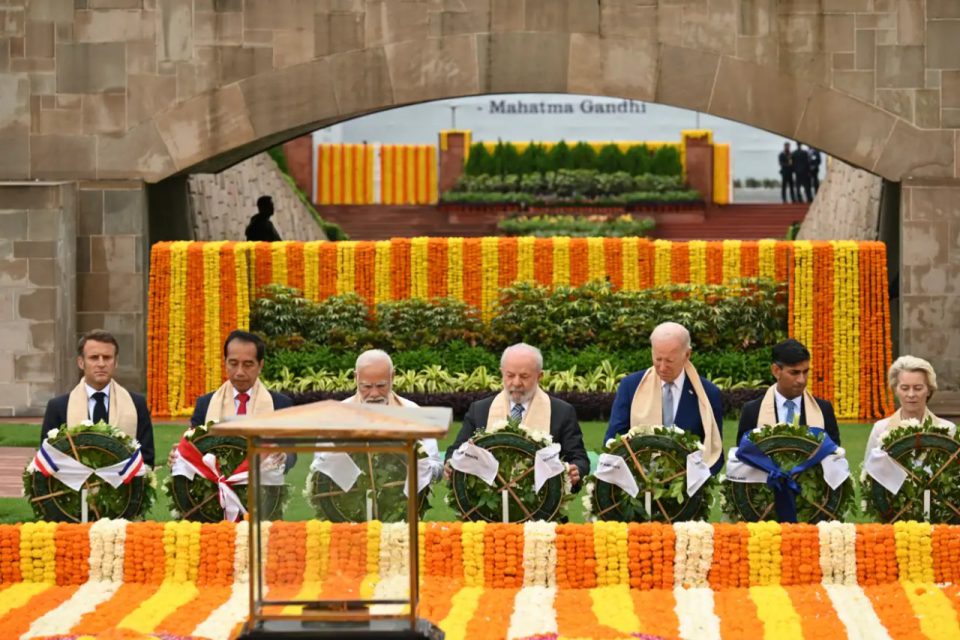The G20 Summit in New Delhi was a landmark event in global diplomacy, where leaders from the world’s most influential economies gathered to address pressing issues and outlined a shared vision for the future. The summit witnessed key developments and agreements that are reshaping the global landscape. At the heart of the summit was the unanimous adoption of the Delhi Declaration, a document emphasizing the critical importance of maintaining territorial integrity and upholding international humanitarian law as foundational elements of global peace and stability. Notably, while the declaration called for nations to avoid using force to acquire territory, it refrained from directly condemning Russia for its actions in Ukraine. This omission drew criticism from Ukraine’s foreign ministry, which argued that the declaration did not sufficiently address the severity of the situation.
A significant milestone at the summit was the inclusion of the African Union as a new permanent member of the G20, representing a substantial shift in power dynamics and underlining India’s commitment to elevating the Global South’s influence in shaping global decision-making. India also unveiled an ambitious plan to create a rail and shipping corridor connecting the country with the Middle East and Europe, with backing from the United States, the European Union, and other key partners. This initiative aims to stimulate economic growth and foster closer political cooperation, showcasing India’s dedication to regional integration and economic development.
Assuming the G20 rotating presidency, Brazilian President Luiz Inacio Lula da Silva pledged to prioritize environmental preservation, given Brazil’s stewardship of the vast Amazon rainforest. Lula aimed to steer the G20 away from discussing the Ukraine conflict, asserting that it was not the appropriate forum for such discussions, despite underlying tensions. The final summit statement acknowledged the “human suffering and negative impacts of the war in Ukraine” without explicitly naming Russia’s invasion. Western leaders, while desiring a stronger stance on Ukraine, considered the consensus a success. They praised India’s adept handling of the complex task of securing agreement among diverse and powerful members.
Throughout the summit, India’s agenda prioritized addressing the needs of the developing world. Notably, Ukrainian President Volodymyr Zelenskyy, a prominent participant in previous G20 events, was conspicuously absent, as Prime Minister Narendra Modi chose not to extend an invitation. Additionally, India launched a global biofuel alliance, featuring 19 countries, including the United States and Brazil. This alliance aims to promote sustainable alternatives to fossil fuels, utilizing agricultural produce or organic waste, aligning with the global push for cleaner energy sources.
The G20 Summit in New Delhi yielded significant outcomes, including the adoption of the Delhi Declaration and the inclusion of the African Union as a permanent member. It also showcased India’s commitment to addressing global challenges, navigating complex geopolitical dynamics, and enhancing the role of emerging economies on the world stage.

